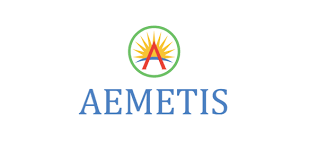The decrease in Q4 revenue was primarily attributable to delays in the India government oil marketing company biodiesel tender process that delayed revenue in India operations.

Aemetis, a renewable natural gas and renewable fuels company focused on below zero carbon intensity products, reported revenues of $37.3 million for the fourth quarter of 2020, compared to $52.1 million for the fourth quarter of 2019.
The decrease in revenue was primarily attributable to delays in the India government oil marketing company biodiesel tender process that delayed revenue in our India operations, and temporarily lower ethanol production in North America due to the lack of enforcement of the 15-billion-gallon renewable fuel standard ethanol blending mandate by the EPA.
Gross loss for the three months ended December 31, 2020 was $3.4 million, compared to a gross profit of $5.8 million during the same period in 2019. The gross profit change was attributable to the temporary ethanol production volume reduction during Q4 2020 due to the price of ethanol decrease from $1.82 per gallon during the three months ended December 31, 2019 to $1.64 per gallon during the three months ended December 31, 2020 in a market where the cost of delivered corn rose from $5.02 to $5.61 per bushel during the same respective periods.
For the twelve months ended December 31, 2020, revenues were $166 million compared to $202 million for the same period in 2019. Gross profit for the twelve months ended December 31, 2020 was $11.0 million, compared to $12.7 million of gross profit during the same period in 2019, despite lower demand for gasoline and ethanol during 2020 due to the COVID-19 pandemic.
Operating loss increased to $6.1 million for the twelve months ended December 31, 2020, compared to an operating loss of $4.9 million for the same period in 2019.
Net loss was $36.7 million for the twelve months ended December 31, 2020, a 7% improvement compared to a net loss of $39.5 million during the same period in 2019.
“Despite historic economic disruptions that significantly reduced gasoline and ethanol demand, revenues for ethanol production in 2020 were relatively flat compared to 2019 largely due to our ability to quickly pivot to alternative markets and establish new revenue streams,” said Eric McAfee, Chairman and CEO of Aemetis.
“Ethanol and high grade alcohol revenues in 2020 were $112 million compared to $115 million in 2019, Gross Profit percentage margins improved by approximately 6%, SG&A expenses were reduced, and Earnings per Share was largely unchanged from 2019 to 2020 as higher margin businesses largely offset the adverse impact of the COVID-19 pandemic,” added McAfee.
“Overall, this earnings report was a positive outcome for 2020, a year in which more than 50 ethanol plants were shut down at various times due to gasoline demand decreases and corn price increases, while the Aemetis plant operated continuously throughout the year. During this same time, we upgraded production equipment to supply high grade alcohol into the sanitizer alcohol market,” McAfee stated.
“We focused on keeping a safe working environment for our employees and on building carbon intensity reduction projects that grew value for shareholders significantly through $17 million of investment in low carbon intensity capital projects during 2020 despite the difficult external conditions. We completed Phase I of the dairy Renewable Natural Gas project, began installation of important Keyes ethanol plant system upgrades to significantly reduce carbon intensity, and began operations of the Messer CO2 liquification facility that is now generating CO2 revenues and IRS 45Q credits from carbon re-use.”
“We also made major steps toward receiving the Authority to Construct air permit for the Aemetis “Carbon Zero” integrated biorefinery in Riverbank, California. The Carbon Zero project is designed to further optimize the economics of the Keyes plant by using the 142-acre Riverbank site to build a plant to utilize distillers corn oil from the Keyes ethanol plant along with below-zero carbon intensity Cellulosic Hydrogen from waste orchard wood to produce Renewable Jet and Diesel,” said McAfee.
“We are excited with the progress made during the many challenges we faced in 2020, and thank our employees for their focus, hard work, and ability to transition to new markets. We look forward to building on this success in 2021 as we complete additional important milestones in dairy RNG, Renewable Jet and Diesel Fuel, India biodiesel government contracts, and Ethanol margin improvements from carbon intensity reduction, and continue to implement the Five Year Plan we announced in early March,” McAfee stated.
Subscribe to our newsletter & stay updated.